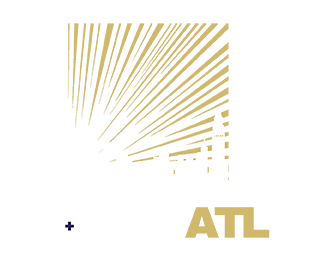Punitive damages are an important aspect to consider in a personal injury case. The personal…

If you have been injured in an accident, you may be wondering what type of pain and suffering compensation you are entitled to.
Unfortunately, there is no simple answer to this question. Every case is different, and the amount of pain and suffering compensation will vary depending on the facts and circumstances of the case.
However, some general principles apply when awarding pain and suffering damages. In most cases, the amount of damages awarded will be based on the severity of the injuries sustained and the extent to which those injuries have impacted the victim's life.
Furthermore, courts will consider a number of factors when assessing pain and suffering damages, including the nature of the injury, how long it is expected to last, whether it is permanent or not, whether it has required medical treatment or not, and any other associated losses or expenses.
If you are considering filing a personal injury claim, it is important to speak with an experienced personal injury attorney who can guide you through the process and help you seek maximum compensation for your injuries.
What Is "Pain And Suffering"?
Pain and suffering is a term used to describe the physical and emotional anguish a person experiences as a result of an injury.
Pain refers to the physical sensation of discomfort, while suffering refers to the mental and emotional stress caused by the pain.
Suffering can include feelings of fear, anxiety, grief, and helplessness. Pain and suffering are often used interchangeably, but they are two distinct concepts.
Pain is a physical sensation, while suffering is an emotional response to pain. Pain can exist without suffering, but suffering cannot exist without pain.
Both pain and suffering can have a profound impact on a person's quality of life. Chronic pain can lead to depression and anxiety, while severe suffering can cause post-traumatic stress disorder.
Pain and suffering can be difficult to quantify, but they are real experiences that can have a significant impact on a person's life.
What Does Compensation for Pain and Suffering Mean?
Compensation for pain and suffering is a type of damages that are awarded to an injured party in a personal injury lawsuit. Pain and suffering is a broad term that encompasses a wide range of physical, emotional, and mental injuries that a person may experience as a result of an accident. These injuries can include physical pain, emotional distress, mental anguish, loss of enjoyment of life, and more.
Types of Pain and Suffering
There are several types of pain and suffering that can be considered when awarding compensation in a personal injury lawsuit:
Physical Pain and Suffering
This type of pain and suffering refers to the physical discomfort and pain that a person experiences as a result of an injury. It can include things like chronic pain, nerve damage, back pain, headaches, and more.
Emotional Pain and Suffering
Emotional pain and suffering refer to the psychological impact of an injury. This can include things like anxiety, depression, fear, and insomnia.
Mental Anguish
Mental anguish refers to the emotional pain and suffering that a person experiences as a result of an injury. This can include things like embarrassment, humiliation, and loss of reputation.
Personal Injuries For Which You Can Claim Pain And Suffering Damages in Georgia
Pain and suffering damages caused by car accidents
Generally speaking, pain and suffering damages are associated with any physical and/or mental distress that results either immediately after or in the months or years following the car accident. Physical damages include but are not limited to headaches, broken bones, abdominal pain/swelling, whiplash, back pain, and lacerations. By the same token, some examples of mental distress include significant levels of anxiety and/or stress, mood swings, insomnia, newfound fear of riding in automobiles, and the possible loss of a spouse or family member.
If you or a loved one have been involved in a motor vehicle accident and experienced physical and/or mental pain and suffering, call The Fitzpatrick Firm at (678) 607-5550 to receive a free consultation regarding your case.
Medical malpractice can cause pain and suffering damages
Damages awarded to plaintiffs involved in medical malpractice lawsuits are similar to those awarded in other personal injury cases. Pain and suffering relate to the physical and/or mental anguish suffered, both before and after the incident, and any lost earnings that result – these types are otherwise referred to as general pain and suffering.
On the other hand, there are special pain and suffering damages that may be awarded to you if you are a victim or a family member of someone who endured some type of medical malpractice. Since medical expenses in this type of personal injury lawsuit can be exorbitant, they are usually at the forefront of attention. Also included are any lost wages that result because of injury, and include past, present, and/or future lost earnings.
Compensation for Pain and Suffering Accidents At Work
Luckily for workers’ compensation victims, you do not need to prove that anyone – colleagues or employers – specific was at-fault. Instead, no matter the circumstances, if you have been injured on the job then you will receive compensation. Even if the accident took place because of your carelessness or lack of awareness.
However, damages awarded to victims with workers’ compensation claims typically can be a little different than those granted in personal injury lawsuits. Specifically speaking, most pain and suffering damages awarded in personal injury lawsuits are not available in a worker’s compensation suit. But there exist forms of health insurance and/or disability insurance that will be offered as benefits to victims who file workers’ compensation claims.
Slip and Fall Accidents
Chiefly, whatever medical expenses you endured – before and after the incident – tend to be most important when it comes to the final settlement amount. However, slip-and-fall cases sometimes do result in permanent damage to the victim. For example, someone who slips and busts their head open so bad that it results in severe brain damage will certainly receive a bigger settlement than someone who is able to recover within months of their incident.
Non-Economic vs Economic Damages
Economic Damages → After a car accident, the victim may have medical bills, property damage payments, and/or lost wages that must be accounted for via settlement. Medical bills not only include expenses related to an emergency room visit, but also any potential follow-up treatment for physical therapy and/or visits to any facilities for X-Ray scanning. Lost wages are any payments that the victim would have received had he or she not been injured in an accident and missing work. Lastly, property damages relate to specific damage(s) to the victim’s vehicle. These payments/losses are examples of economic damages. Though these types of losses vary case-by-case, it is important to keep track of them nonetheless.
Non-Economic Damages → This is where pain and suffering as well as any type of emotional distress caused by the collision come into play. Injuries that result in permanent damage or disability to a victim are also classified as non-economic damages. Typically, these kinds of losses can significantly vary depending on how well the victim(s) is/are able to function after the accident. Since the exact amount in damages is not as clear-cut as economic damages, it is important that you consult with an attorney who will help you better understand this process and come up with an exact amount that you feel comfortable with.
How Do You Prove Pain And Suffering?
Injury Victims With Physical Pain
Essentially, when proving pain and suffering – specifically physical injuries – lawyers and insurance adjusters start off by looking at your medical expenses and the extensiveness of medical treatment you received. Since medical bills provide both parties with an exact total, it makes it easier to prove pain and suffering in this regard. In addition, any monetary earnings that a victim missed out on because of the accident will be included as damages awarded in the final settlement statement.
Pain And Suffering Without Physical Injury
Pain And Suffering Damages For Emotional Distress
Mental pain and suffering damages work a little bit differently. After an accident that results in personal injury, the victim may endure heightened levels of anxiety and/or stress, a general fear of riding in automobiles following the incident, insomnia, and potentially significant anguish if the accident resulted in the death of a victim’s family member or spouse. This is generally referred to as a meaningful loss of his or her future enjoyment of life. Essentially, the victim must prove that the personal injury accident is the cause of the mental distress experienced after the incident. Although more difficult to calculate than physical pain and suffering, if you are a victim of a personal injury lawsuit and experience any of the pain and suffering examples mentioned above, you will be compensated for the mental torment you endured.
Calculating Pain and Suffering Damages
In Georgia, there is no exact method used by every lawyer and insurance adjuster that calculates pain and suffering. Usually, the final number is determined based on 1) the severity and extensiveness of the injuries and 2) whether or not the injuries suffered result in irreparable damage that may cause lifelong disability or disfigurement.
How A Personal Injury Lawyer Maximizes Pain And Suffering Compensation
A personal injury lawyer represents individuals who have been injured, physically or psychologically, as a result of the negligence or wrongdoing of another person, company, government agency, or other entity. There are many different types of personal injury cases, ranging from car accidents and slip-and-fall accidents to defective products and medical malpractice. In each case, the goal of the personal injury lawyer is to maximize pain and suffering compensation for their client and negotiate a settlement with the responsible party.
Pain and suffering damages are important components of a personal injury case. It is designed to compensate the victim for the physical pain and emotional distress caused by the accident. Although it can be difficult to quantify, an experienced personal injury lawyer will know how to build a strong case for their client.
As your attorney, we will take into account all relevant factors, including the severity of the injuries, the length of time it takes to recover, and any scarring or disfigurement. In addition, we also consider the impact that the accident has had on the victim's life, including lost wages and loss of enjoyment of life.
By thoroughly documenting all aspects of the case, a personal injury lawyer can ensure that their client receives full and fair compensation for pain and suffering.
If an insurance company refuses to offer a fair settlement, a personal injury lawyer can take the case to trial. Through aggressive courtroom advocacy, they can help their client obtain the compensation they deserve.
Contact The Fitzpatrick Firm To Receive The Pain And Suffering Compensation You Deserve
Our experienced personal injury attorneys know how to build strong cases and negotiate favorable settlements for their clients. If you have been injured in an accident, contact a personal injury lawyer at The Fitzpatrick Firm today to discuss your legal options.


